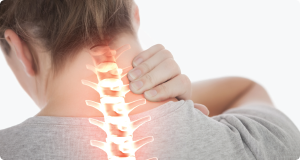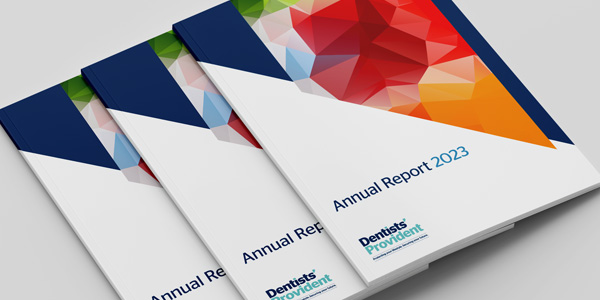
In this first article the focus is on accidents and musculoskeletal issues, when and how they occur and what could be done to prevent them.
Introduction
Dentists of every age reading this will remember the ups and the downs of being a dental student, whilst others will filter out the lows and only remember the good times; being young, fit and healthy away from the pressures of the ‘real world’. But when you are going through the five or so years of toil, you feel there is enough on your plate keeping up with the late-night studies, passing exams and learning how to deal with patients to take on any more strains and stresses.
Dentistry is considered by many to be a stressful profession; you are extremely reliant on your physical and mental wellbeing, from the excellent functioning of your eyes, back, hands and feet to your patient, calm considered nature and quick thinking. This pressure never really relents throughout your career.
Accidents do happen
When you are young you never think anything will happen to you but the statistics tell a different story. Dentists’ Provident 2018 claims statistics show that the age of the youngest claimant was 27, and that isn’t unusual. And even while at dental school you hear stories of peers having to take time off, whether it’s for a trip on an evening out, a slip on the ski slope or a clash with an opponent in rugby. If there is minimal impact these can be amusing stories to tell friends, but what about when these tales turn into horror stories? Horrors like having to retake your fourth year, not keeping up with your clinic’s targets, failing to make the grades in your finals or not even being able to become a dentist. Injuries, however big or small can have a huge impact on your life and studies, so taking action to protect yourself as early as possible could help to minimise the inevitable impact you’ll encounter later on.
A third-year dental student from a London dental school unexpectedly injured his wrist and shared his experience. “Having to take a few months out of my studies because of an injury has been extremely challenging. Seeing your colleagues develop their clinical skills, and not be allowed into clinics to manage your patients makes you feel powerless to say the least. I had to work exceptionally hard to catch up with all my university work. For much of the time I couldn’t even type, write or even concentrate because of the pain following surgery. I realised that in order to have a long-lasting career in dentistry, you have to look after your body. Without your body there is no dentistry!”
Musculoskeletal issues
Musculoskeletal disorders (MSDs) are potentially more of a longer term consideration, and there are many studies and papers about dental students and dentists suffering from them throughout their careers. The primary cause of them can be the prolonged static postures while working around a patient, or even a phantom head. Static postures, for example, put a greater strain on your body than dynamic postures, requiring you to contract more than 50% of your muscles just to maintain your position. Relying on static postures could lead to muscle imbalances that can perpetuate, as the more pain you experience to correct these imbalances the less you are likely to be able to. Also the way a dental professional moves can mean overarching the lumbar spine, potentially leading to postural imbalances, mal-coordination and inevitably pain.
Reading through scientific papers it is clear that this is a worldwide problem. A study in 2016 in an Australian dental school noted that 85% of students from all years reported MSDs, specifically in their necks and lower backs, and this study concluded that ergonomic education was a key requirement as part of the curriculum.
A research paper in the BDJ published in July 2018 from research undertaken at Bristol Dental School supported the same statistic, finding that 85% of dental students suffered from MSDs due to poor posture, causing both fatigue and injuries. In the future this could potentially lead to reduced working hours or even early retirement. They also noted that females seemed to have an increased susceptibility to pain associated with posture and that posture was worst with the second year students. They concluded that it was important to obtain and maintain a good posture from a young age; alternating sitting with standing and regularly using loupes. Their recommendations were for all clinical years to have more structured postural training and assessments. Clinical training is now undertaken from the first year at Bristol as well as many other dental schools, so these issues could present themselves from a very young age and that has implications for the future.
Having worked with an Alexander teacher, Belinda May, on posture sessions over a number of years with the second years at Bristol, I have witnessed first-hand the issues they face. Belinda said after a recent session “I’m surprised how many young students complain of aches, pains and discomfort in their backs, neck and wrists amongst other areas. It’s important to understand how to move in a more natural way that is protective of your muscles and joints and to focus on the correct posture to prevent pain and injury from imbalanced use of your muscles. Learning good habits at dental school is important, as once bad habits get set in they are very hard to break.”
Whatever stage you are at in your career now, take the time to think about whether you have a preventive approach to your physical health and wellbeing, and that you try to spot early signs of discomfort or pain. If you look after yourself and protect what is important now, you could be set for a long, fulfilled and pain-free career.
References available on request.
This article is intended for general information only, it is not designed to provide financial, health or other advice, nor is it intended to make any recommendations regarding the suitability of any plans for any particular individual. Nothing in this article constitutes an invitation, inducement or offer to subscribe for membership or additional benefits of Dentists’ Provident.
No responsibility or liability is assumed by Dentists’ Provident or any copyright owner for any injury or damage to persons or property as a consequence of the reading, use or interpretation of its published content. Whilst every effort is made to ensure accuracy, Dentists’ Provident, the authors, Editors and copyright owners cannot be held responsible for published errors.
Dentists’ Provident exercises editorial control only over material published and/or produced by it. No responsibility or liability is assumed by Dentists’ Provident for any articles produced or reproduced in third party publications and/or websites.
The views or opinions expressed do not necessarily reflect views of Dentists’ Provident or copyright owners. Inclusion of any advertising material does not constitute a guarantee or endorsement of any products or services or the claims made by any manufacturer.
If you have any questions, please contact our member services consultants by emailing press@dentistsprovident.co.uk or calling 020 7400 5710.
If you have any questions, please contact our member services consultants by emailing
memberservices@dentistsprovident.co.uk or calling 020 7400 5710.

Our 2024 Annual General Meeting will be held at 91-94 Saffron Hill, London, EC1N 8QP on Friday 24th Ma…
Read more
The 2023 annual report from Dentists’ Provident, a leading income protection provider for dental profe…
Read more
Our next exhibition is the British Dental Conference & Dentistry Show in May, where we look forward to meeting anyone interested in becoming a member or members wanting to discuss their plans.